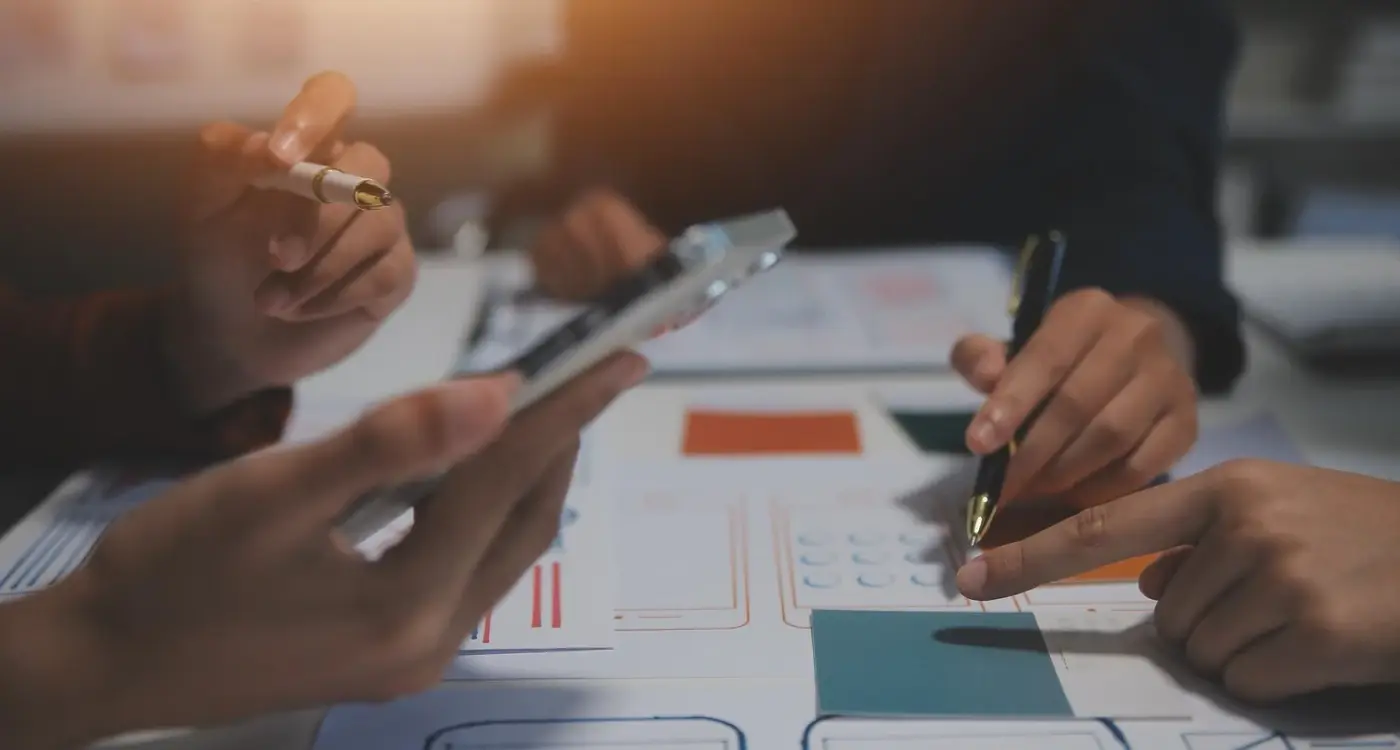How Long Does It Take To Build A Social Media App?
Have you ever wondered why some social media apps take months to build whilst others seem to appear overnight? After eight years of building mobile apps for everything from ambitious startups to well-established brands, I can tell you that social media development is one of the most complex challenges we face. It's not just about creating another messaging platform—you're building the digital spaces where people connect, share, and express themselves.
The truth is, there's no simple answer to how long your social media app will take to develop. I've seen projects that looked straightforward on paper stretch for months due to unexpected complexities, and I've watched supposedly ambitious builds come together faster than anyone anticipated. The development duration depends on countless factors that many people don't consider during the early project planning stages.
Every social media app is unique, but the principles of good mobile app development remain the same—clear planning, realistic expectations, and understanding what you're really trying to build.
What I've learned is that asking "how long" is actually the wrong starting point. The better question is understanding what makes your social media app different from the thousands already out there. Once you know that, the timeline becomes much clearer. That's exactly what we're going to explore together in this guide.
What Makes Social Media Apps Different
Social media apps aren't your typical mobile applications—they're complex beasts that demand a completely different approach to development. After building dozens of these platforms over the years, I can tell you that the biggest difference lies in their real-time nature. Every like, comment, share, and message needs to happen instantly across thousands (hopefully millions!) of devices simultaneously.
The technical challenges start piling up quickly. You're dealing with massive amounts of user-generated content, complex notification systems, and the constant need to keep feeds fresh and engaging. Traditional apps might pull data occasionally; social media apps are constantly chattering with servers, syncing data, and managing user interactions.
Core Technical Requirements
Social platforms require several specialised systems that simpler apps can skip entirely:
- Real-time messaging and notification infrastructure
- Content moderation systems to handle inappropriate posts
- Scalable media storage for photos and videos
- Complex user relationship management (friends, followers, blocking)
- Advanced search and discovery algorithms
- Privacy controls and data protection systems
The User Engagement Factor
Social apps live or die by engagement metrics. Users expect their content to reach the right audience, they want personalised feeds, and they demand instant responses. This means building sophisticated recommendation engines and analytics systems from day one—not something you can bolt on later when you've got time.
Planning Your Social Media App Project
Before you write a single line of code, you need to figure out what your social media app will actually do. I know this sounds obvious, but you'd be surprised how many clients come to us with vague ideas like "I want to build the next Instagram" without thinking about what makes their app different or special.
Start by defining your core features. What's the main thing people will do in your app? Share photos, send messages, create videos, or connect with friends? Write these down because they'll become your minimum viable product (MVP). Everything else is just nice-to-have features that can wait.
Key Planning Steps
- Define your target audience and their needs
- List your core features (keep it simple!)
- Choose your platforms (iOS, Android, or both)
- Set a realistic budget and timeline
- Plan your technical requirements and infrastructure
Don't try to build everything at once. Start with 3-5 core features that solve one specific problem really well. You can always add more features later once people are using your app.
Your mobile app development duration depends heavily on how well you plan upfront. Spend time on project planning now and you'll save months later. Trust me, changing your mind halfway through development is expensive and frustrating for everyone involved.
The Main Development Phases
Building a social media app follows the same basic development phases as any mobile app, but there are some unique twists that make the timeline different. I've broken down the main phases so you can understand what happens when and why each stage matters for your project.
Design and Architecture Phase
This is where your app starts taking shape visually and technically. The design team creates wireframes and mockups whilst the technical team plans the backend architecture. For social media apps, this phase takes longer because you need to think about user profiles, feeds, messaging systems, and content storage. We're talking about 3-4 weeks minimum here—sometimes up to 6 weeks for complex apps with lots of features.
Core Development Phase
Now the real coding begins. Developers build the frontend (what users see) and backend (the server systems that make everything work). Social media apps need robust user authentication, real-time messaging, and content management systems. This phase typically takes 8-16 weeks depending on your feature list. The backend work is particularly time-consuming because social platforms need to handle lots of users sharing content simultaneously without crashing.
Once the core features are built, you'll move into integration testing where everything gets connected and tested together. This usually adds another 2-3 weeks to your timeline.
How Features Impact Build Time
When planning your social media mobile app development timeline, the features you choose will make or break your project planning schedule. I've seen clients add what they think is a "simple" feature that ends up adding weeks to the development duration—and I've learned to spot these time traps from miles away!
Basic features like user profiles, posting text updates, and simple messaging might take 2-3 weeks each. But here's where things get tricky: video features, real-time chat, and location services can easily triple that timeframe. Live streaming? That's a whole different beast that could add 6-8 weeks to your mobile app development.
The Hidden Complexity Trap
Push notifications sound straightforward, right? Wrong. They require backend infrastructure, device compatibility testing, and user permission handling. What seems like a one-week feature often becomes three weeks of proper notification implementation.
Every feature you add doesn't just increase development time—it multiplies the testing requirements and potential integration headaches
Smart Feature Planning
Start with your core features first; the ones that make your app actually work as a social platform. Save the bells and whistles for version two. Trust me, your project planning will thank you for this approach, and you'll have a much more realistic development duration from the start.
Team Size and Development Speed
When it comes to building social media apps, the size of your development team directly affects how quickly you can get your app finished. But here's the thing—throwing more developers at a project doesn't always mean faster results.
A typical social media app needs different types of specialists working together. You'll want frontend developers for the user interface, backend developers for server work, designers for the visual elements, and quality assurance testers to catch bugs. The sweet spot for most projects is usually between 4-8 team members.
How Team Size Affects Timeline
Small teams of 2-3 people might take 8-12 months to build a comprehensive social media app, whilst larger teams of 6-8 developers could potentially cut this down to 4-6 months. But there's a catch—bigger teams need more coordination and communication, which can actually slow things down if not managed properly.
The Right Balance
From my experience working with development teams over the years, the most efficient setup usually includes:
- 2 frontend developers (iOS and Android)
- 2 backend developers
- 1 UI/UX designer
- 1 project manager
- 1 quality assurance tester
This configuration typically delivers a solid social media app in 5-7 months, assuming clear requirements and good project management. The key is having people who can work well together rather than just having lots of them.
Testing and Launch Preparation
Testing isn't just something you do at the end—it's woven throughout the entire mobile app development process. But here's where things get interesting: the final testing phase before launch can add anywhere from 2-4 weeks to your project timeline, and that's for a well-built app with minimal issues.
I've seen too many teams rush this stage because they're excited to get their social media app into users' hands. Big mistake. This phase is where you catch the bugs that could kill your app's reputation before it even gets started.
The Testing Process
Your testing phase breaks down into several key areas that all need attention:
- Functional testing—does everything work as expected?
- Performance testing—how does it handle lots of users?
- Security testing—can hackers break in?
- Device compatibility—works on different phones and tablets
- User acceptance testing—real people trying your app
Start your App Store submission process early—Apple's review can take up to 7 days, whilst Google Play is usually much faster at 1-3 days. Don't let this catch you off guard when planning your launch date.
Launch Preparation
Preparing for launch means more than just uploading your app. You need app store listings, screenshots, descriptions, and marketing materials ready to go. The technical side includes setting up analytics, crash reporting, and your backend infrastructure to handle real users. Getting all this sorted typically takes 1-2 weeks of focused effort alongside your final testing—and understanding the App Store submission process is crucial when planning your mobile app project.
Common Delays and How to Avoid Them
After eight years of building social media apps, I can tell you that delays happen more often than anyone wants to admit. The good news? Most of them are completely avoidable if you know what to look for.
The Biggest Time Wasters
Changing your mind halfway through development is the number one cause of delays I see. You start with a simple photo-sharing app, then suddenly you want video calls, messaging, and live streaming. Each new feature means going back to the drawing board—and that's expensive time you can't get back.
Third-party integrations cause headaches too. That payment system or social login feature that looked simple? Sometimes their documentation is rubbish or their servers go down during testing. We always build extra time into projects for these surprises.
How We Keep Things on Track
The secret is planning like your life depends on it. We lock down features before any code gets written and stick to that plan. When clients want changes (and they always do), we show them exactly how much time it'll add.
We also test integrations early—not at the end when there's no time left to fix problems. Building a buffer into every timeline isn't pessimistic; it's realistic. Most clients appreciate honest timelines over optimistic ones that fall apart later.
Conclusion
After working on countless social media app projects over the years, I can tell you that asking "how long does it take" is a bit like asking how long a piece of string is! The truth is, building a mobile app—especially one as complex as a social media platform—depends on so many factors that giving you a single answer would be doing you a disservice.
What I can say with confidence is this: proper project planning makes all the difference. Whether you're looking at a 4-month MVP or an 18-month full-featured platform, the teams that succeed are the ones who take time upfront to define their scope, understand their users, and plan for the unexpected. Development duration isn't just about coding time—it's about research, design, testing, and all those little details that make an app actually worth using.
The mobile app market is competitive, and social media apps face particular challenges around user engagement and retention. But with realistic timelines, the right team size, and a clear understanding of which features matter most to your users, you'll be much better positioned to launch something people actually want to use. Take your time with the planning phase; your future self will thank you for it.
Share this
Subscribe To Our Learning Centre
You May Also Like
These Related Guides

When Should You Say No to Stakeholder Feature Requests?

What Are the Key Elements of App Project Stakeholder Mapping?



